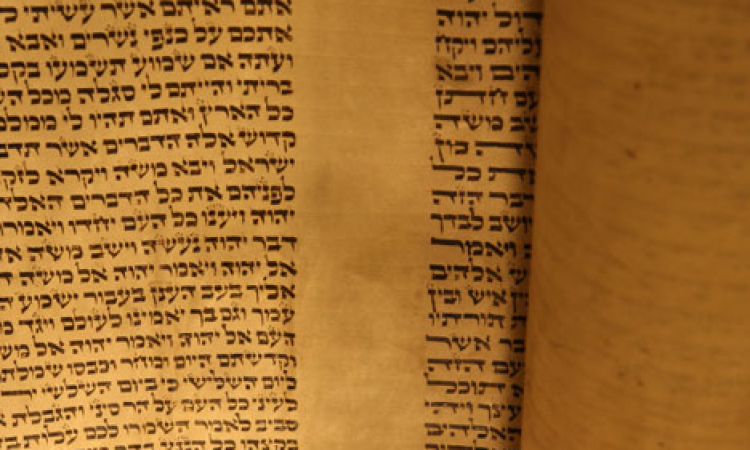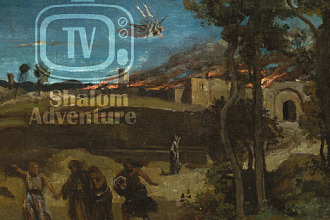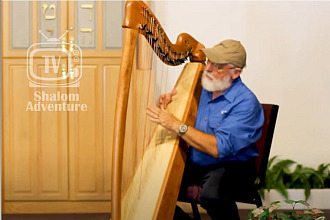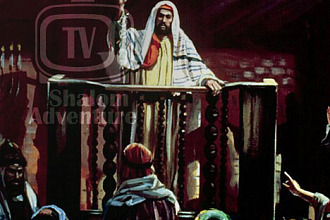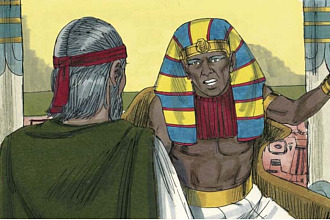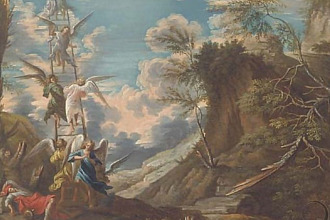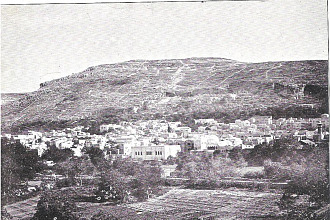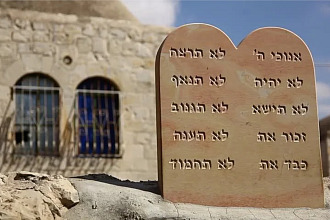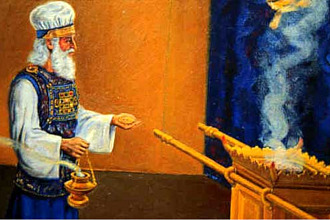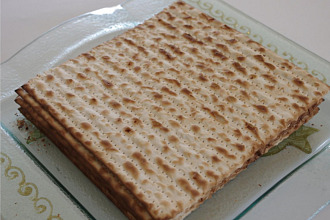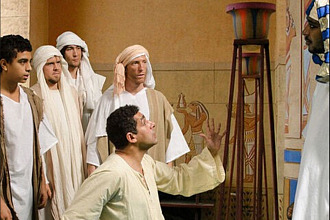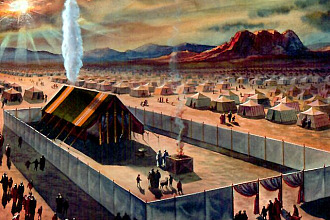Parasha for the Week: Pinchas - Numbers 25:10 – 30:1
Haftara for the Week: 1 Kings 18:46 – 19:21
Besorat Yeshua: Mark 6:2 - 13
Overview
G-d tells Moshe to inform Pinchas that Pinchas will receive G-d’s “covenant of peace” as reward for his bold action— executing Zimri and the Midianite princess Kozbi.
G-d commands Moshe to maintain a state of enmity with the Midianites.
Moshe and Elazar are told to count the Jewish People. The Torah lists the names of the families in each tribe. The total number of males eligible to serve in the army is 601,730.
G-d instructs Moshe how to allot the Land of Israel to Bnei Yisrael. The number of the Levites’ families is recorded.
Tzlofchad’s daughters file a claim with Moshe: With no brother, they request their late father’s portion in the Land. Moshe asks G-d for the ruling, and G-d tells Moshe that their claim is just.
The Torah teaches the laws and priorities which determine the order of inheritance.
G-d tells Moshe that he will ascend a mountain and view the Land that the Jewish People will soon enter, although Moshe himself will not enter.
Moshe asks G-d to designate the subsequent leader, and G-d selects Yehoshua bin Nun.
Moshe ordains Yehoshua as his successor in the presence of the entire nation.
The Parsha concludes with special teachings of the service in the Beit Hamikdash.
“Pinchas Gets a Special Status in Israel”
The Torah states, “And the L-rd spoke to Moshe, saying: Pinchas, the son of Elazar the son of Aaron the priest, has turned away My wrath from the children of Israel… Therefore say: Behold, I give unto him My covenant of peace (Shalom). And it shall be to him and to his seed after him a covenant of an everlasting priesthood…” (Num 25:10-13). Pinchas was the son of Elazar and grandson of Aaron the Kohen Gadol (High Priest). At the end of the previous Parsha we read that Pinchas stood up for G-d’s honor. He killed a prince of the tribe of Shimon who sinned with a Midianite woman. In this Parsha, G-d rewards Pinchas for his act which stopped a plague affecting the Jewish nation. In reward, G-d gave him the “covenant of peace.”
“Covenant of Shalom”
The Torah states, The LORD spoke to Moses, saying: “Phinehas son of Eleazar, son of Aaron the priest, has turned back my wrath from the Israelites by manifesting such zeal among them on my behalf that in my jealousy I did not consume the Israelites. Therefore say, ‘I hereby grant him my covenant of peace. It shall be for him and for his descendants after him a covenant of perpetual priesthood, because he was zealous for his God, and made atonement for the Israelites.’” (Num. 25:10-13). Why is the priesthood here referred to as “the convent of Shalom-peace”? G-d wanted to teach Pinchas an important lesson. Pinchas achieved this reward as a result of his killing the Jewish prince who sinned with a Midianite woman. Although it was necessary at the time, yet, it was a harsh act in which two people were killed. G-d rewards Pinchas for his act, but expresses His reward with words, “Covenant of Peace.” This is to tell Pinchas that as a leader of the people, although there are times when force and strength is required, it should be used only in extreme cases. All other times, the approach of peace/Shalom is the better and proper way. Only someone who is a true lover of the Lord, who love peace and pursued it, can react with righteous zealousness instead out of anger.
“The Chosen of a Leader”
In the Parsha, Moshe asks G-d to appoint a leader over the Jewish people; “A leader who will go out before them and who will come in before them; one who will lead them out and who shall bring them in; so that the congregation of the L-rd will not be as sheep which have no shepherd.” This was exactly the concern of Yeshua Hamashiach “When he saw the crowds, he had compassion for them, because they were harassed and helpless, like sheep without a shepherd.” (Matt. 9:36) G-d commanded Moshe to place his hands on Joshua (Yehoshua), “you shall put from your honor on him, and he shall lead the Jewish people and bring them into the land of Israel.”
HAFTARA 1 Kings 18:46 – 19:21
Parasha: The Parasha is about Pinchas who killed Zimri and the Midianite princess.
Haftara: The haftara reminds us of the story of Elijah who did great deeds as Pinchas did. Elijah killed the priests of Baal. “But the hand of the LORD was on Elijah; he girded up his loins and ran in front of Ahab to the entrance of Jezreel. Ahab told Jezebel all that Elijah had done, and how he had killed all the prophets with the sword. (1Kings 18:46-19:1). However, the leadership of Israel at the time of Elijah was not faithful to G-d. The queen wanted to kill Elijah, not reward him. “Then Jezebel sent a messenger to Elijah, saying, “So may the gods do to me, and more also, if I do not make your life like the life of one of them by this time tomorrow.” (1Kings 19:2). No Moses was there to protect Elijah and he was afraid of the reaction of Jezebel, the cruel queen. Then he was afraid; he got up and fled for his life, … he himself went a day’s journey into the wilderness, and came and sat down under a solitary broom tree. He asked that he might die: “It is enough; now, O LORD, take away my life, for I am no better than my ancestors.” (1Kings 19:3- 4) Elijah was a great man. He was one who had the privilege of going to heaven without first dying, but he was a human being and became depressed. He slept and during his sleep God spoke to him through an angel: “Then he lay down under the broom tree and fell asleep. Suddenly an angel touched him and said to him, “Get up and eat.”” (1Kings 19:5). What a great encouragement for us; the Lord is taking care of us too. From time to time we might think that we alone are faithful to G-d. Elijah had the same feeling, but G-d told him that there was a remnant of 7,000 who also were faithful.
Besorat Yeshua Mark 6:2 - 13
Parasha: The Parasha tells of Yehoshua (Joshua) becoming the leader.
Besorah: Similarly, the Besorah tells of Yeshua, leading. He was not a priest, he was not a Pharisee, but the people were astonished to hear him teaching with such great authority. “On the sabbath he began to teach in the synagogue, and many who heard him were astounded. They said, “Where did this man get all this? What is this wisdom that has been given to him? What deeds of power are being done by his hands! (Mark 6:2).
Haftara: Elijah was not understood. His courageous action was not accepted by the leaders of Israel: “Jezebel sent a messenger to Elijah, saying, “So may the gods do to me, and more also, if I do not make your life like the life of one of them by this time tomorrow.” (1Kings 19:2).
Besorah: In the same way in the Besorah, Yeshua was not accepted by the leaders of Israel of his time. “And they took offense at him. Then Yesuah said to them, “Prophets are not without honor, except in their hometown, and among their own kin, and in their own house.” ” (Mark 6:3-4). It is difficult to be a prophet in one’s own country. Most of the prophets of the Bible experienced these same difficulties, but the opposition from the leaders against Yeshua was so strong that he could not pour God’s blessing upon them “And he could do no deed of power there, …And he was amazed at their unbelief” (Mark 6:5-6). It is not very often that the level of unbelief of some people astonished or amazed Yeshua, but this time, he was. Week after week we read these comments on the Parasha, the Haftara, and the Besorah. Are we still unbelievers? There is an absolute continuity between the Torah, the Nevi’im (prophets) and the Besorah (gospel). But if we don’t want to believe, nobody can force us.

